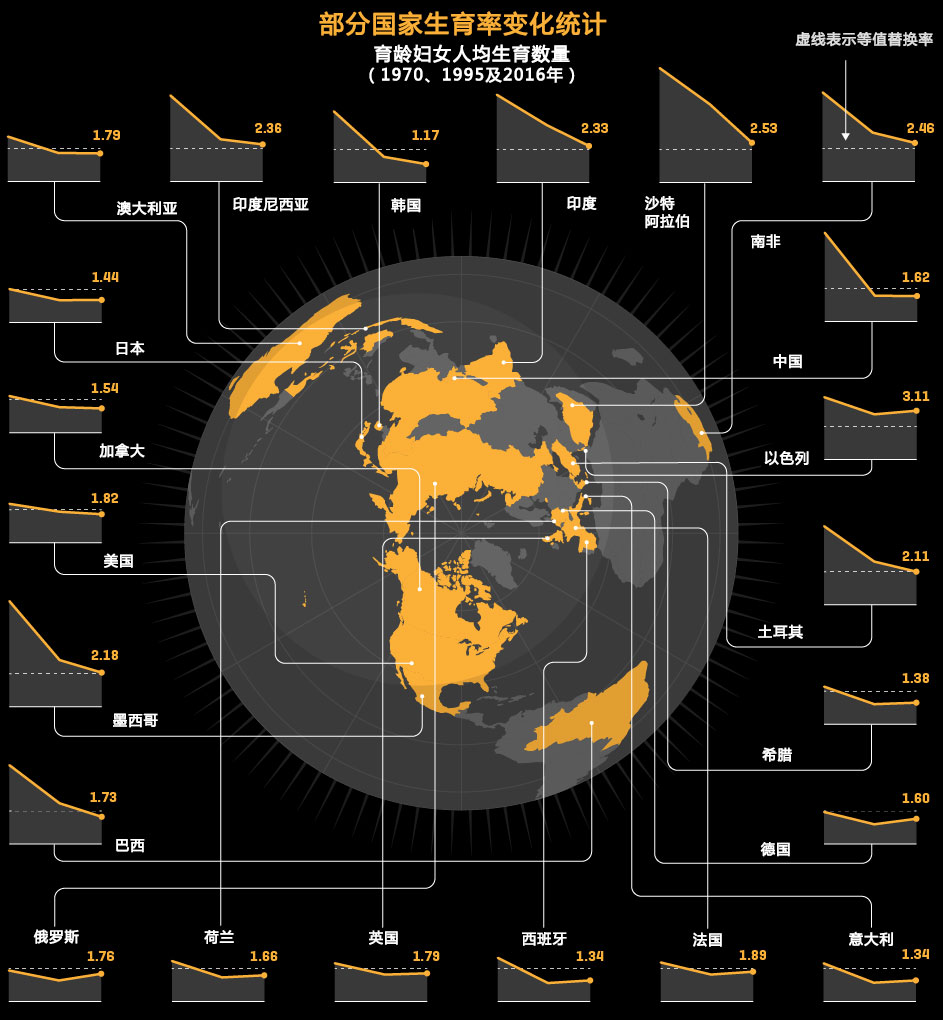
|
在大多數工業國家,平均每個婦女生育孩子的數量已降至2.1以下,這一數字是保障人口增長平穩的“更替率”。對于資源緊張的地球來說,這或許是件好事。但對企業和政府來說,這是一個迫在眉睫的挑戰。生育率下降的一大影響是上班人口與退休人口比例的下降,這已經開始侵蝕美國、歐洲和日本的社會保障體系。生育率的下降也威脅著那些依靠不斷擴大客戶群來實現增長的面向消費者的行業。為了解決這個問題,我們需要加快發展生產力,以及制定更好的移民政策。這些解決辦法很重要,不是兒戲。(財富中文網) |
In most industrial nations, the average number of childbirths per woman has fallen below 2.1—the “replacement rate” at which population growth ?levels off. That may be good for a resource-strained planet. But for businesses and governments, it’s a looming challenge. One impact of declining fertility—a sinking ratio of working-age people to retiree—is already eroding social safety nets in the U.S., Europe, and Japan. Falling birth rates also threaten consumer-facing industries whose growth depends on ever-expanding pools of customers. To address the problem, we’ll need big gains in productivity and better immigration policy. Those solutions are anything but child’s play. |




